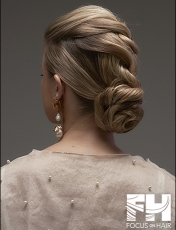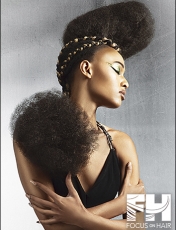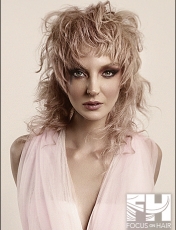On July 3, 2019, California became the first state in the union to officially ban racial discrimination based on natural hair. As reported by the Los Angeles Times, the California State Assembly voted unanimously to pass SB 188, also known as the CROWN Act, intending to protect people, including but not limited to those, with braids, twists, cornrows, and other traditionally black hairstyles from racist grooming policies.
 The CROWN act stands for Creating a Respectful and Open Workplace for Natural hair. Once signed into law, the bill would legally protect people in workplaces and K-12 public schools. The bill has passed the second chamber and heads to California governor Gavin Newsom to be signed into law.
The CROWN act stands for Creating a Respectful and Open Workplace for Natural hair. Once signed into law, the bill would legally protect people in workplaces and K-12 public schools. The bill has passed the second chamber and heads to California governor Gavin Newsom to be signed into law.
The CROWN act grants all persons in public schools regardless of their disability, gender, gender identity, gender expression, nationality, race or ethnicity, religion, sexual orientation, or any other specified characteristic, equal rights and opportunities in the educational institutions of the state.
It's also unlawful Under the California Fair Employment and Housing Act to engage discriminatory employment practices, including hiring, promotion, and termination based on certain protected characteristics, including race. The bill also prohibits housing discrimination based on the same characteristics.
Existing law defines terms such as race, religious beliefs, and sex, among others, for purposes of the act. This bill would provide that the definition of race for these purposes also include traits historically associated with race, including hair texture and protective hairstyles, and would define protective hairstyles for purposes of these provisions.
"This is a fundamental issue of personal dignity and personal rights," California Senator Holly Mitchell, the bill's author, told the Times. "This bill has truly struck a deeply personal chord with people because there is something so deeply personally offensive when you are told that your hair, in its natural state, is not acceptable in the workplace."














